In the fast-paced world of academic research, efficiency and accuracy are paramount. Research assistants often find themselves juggling multiple tasks, from literature reviews to data analysis. Fortunately, advancements in artificial intelligence (AI) have paved the way for innovative tools designed to streamline the research process. In this article, we’ll explore some of the best AI tools tailored specifically for research assistants. These tools are equipped with powerful features to assist in literature search, data analysis, writing, and more, ultimately helping research assistants save time and produce high-quality work.
Elicit
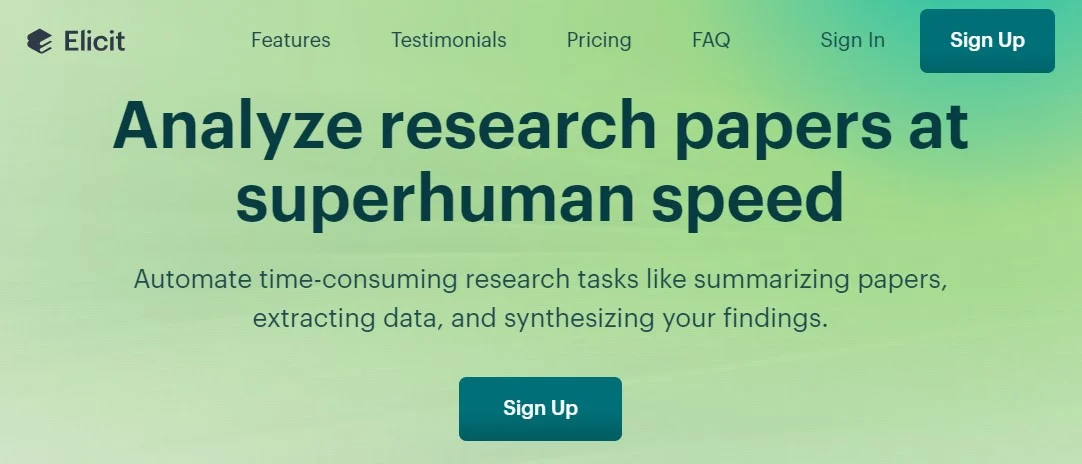
Elicit is an AI-powered research assistant that helps users gather and organize relevant information from various sources. Whether you’re conducting a literature review or compiling data for analysis, Elicit streamlines the research process by providing comprehensive search results and intelligent data categorization.
Key Features and Capabilities
- Advanced search algorithms for retrieving relevant academic papers and articles.
- Automated data extraction and summarization for quick insights.
- Collaboration features for sharing research findings with team members.
- Integration with reference management tools for seamless citation management.
Real-world Use Cases or Examples
Elicit is ideal for research assistants working on literature reviews, systematic reviews, and meta-analyses. It can also be used to gather background information for research proposals and grant applications.
Research Pal
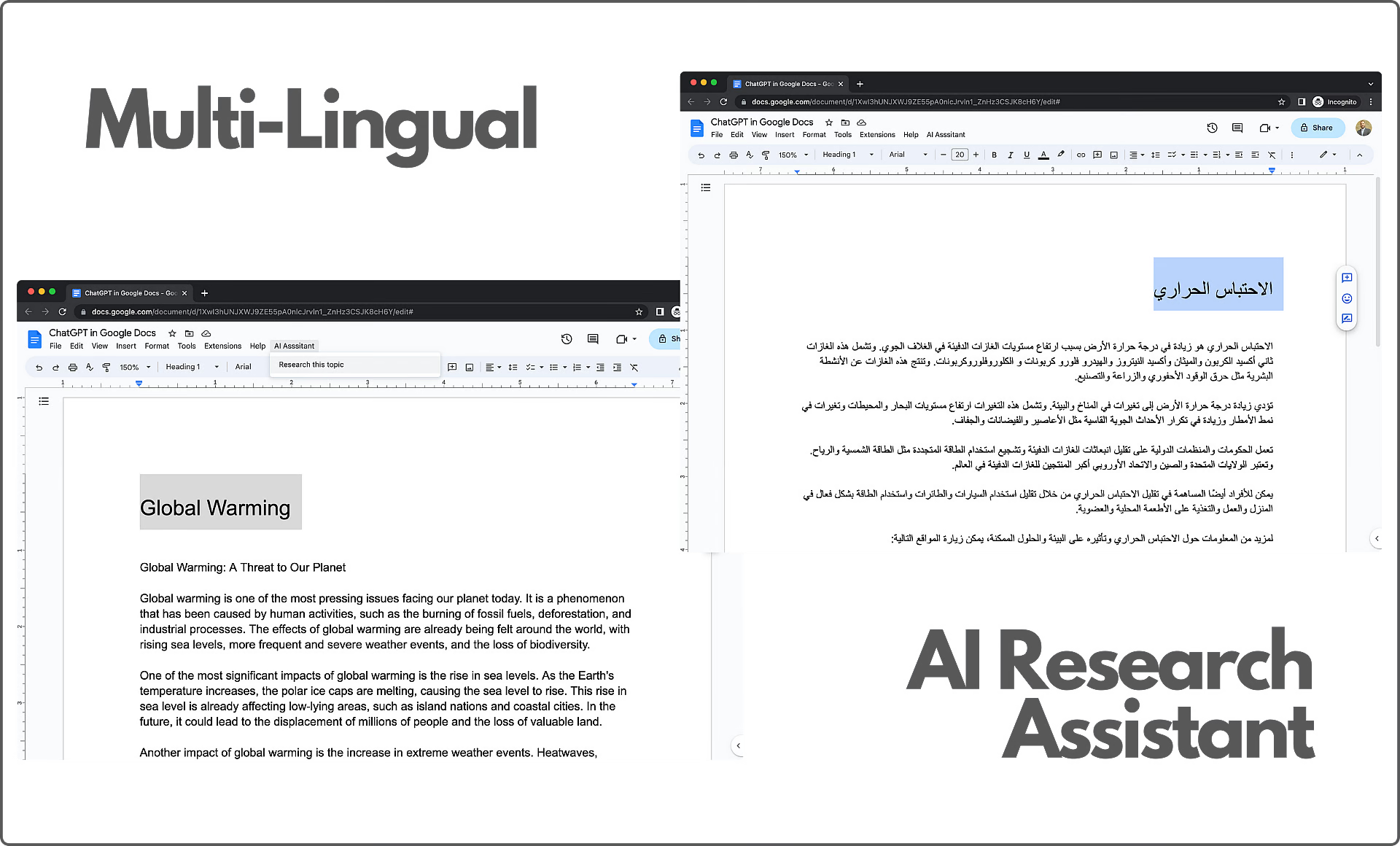
Research Pal is an AI-driven research assistant designed to assist scholars and researchers in their academic endeavors. With its intuitive interface and powerful features, Research Pal simplifies the process of finding and organizing scholarly literature, saving time and effort for research assistants.
Key Features and Capabilities
- Smart search functionality for retrieving relevant research articles and papers.
- Personalized recommendations based on user preferences and search history.
- Annotation and note-taking tools for organizing research findings.
- Citation management features for creating bibliographies and reference lists.
Real-world Use Cases or Examples
Research Pal is well-suited for research assistants working in academic institutions, research labs, and corporate R&D departments. It can also benefit graduate students and early-career researchers looking to streamline their literature review process.
AcademicID
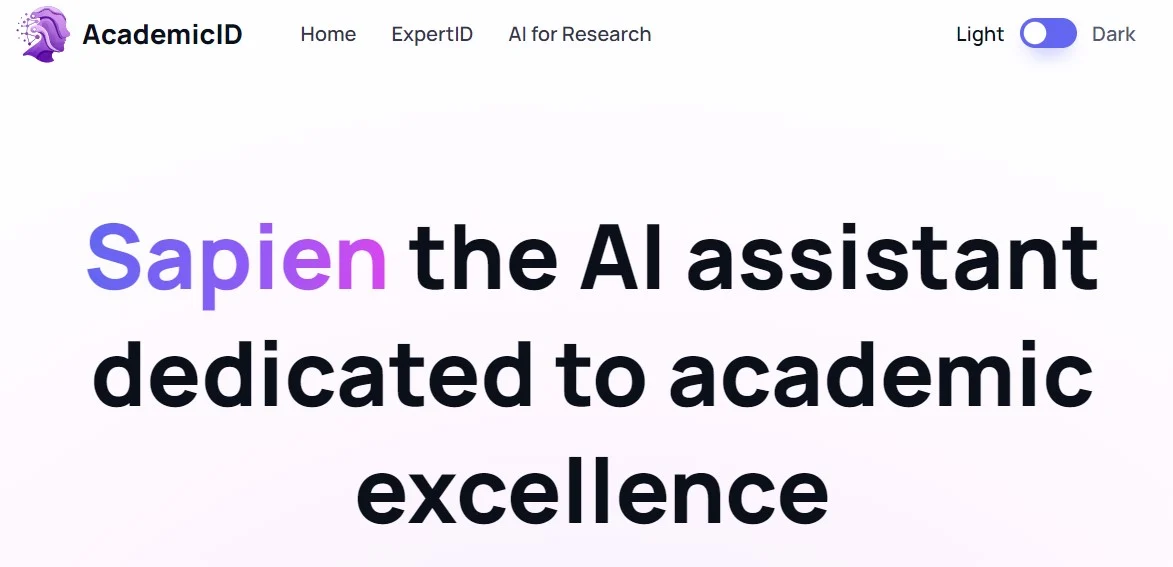
AcademicID is an AI-powered platform that simplifies the process of academic research and writing. With its advanced algorithms and intuitive interface, AcademicID assists research assistants in conducting literature reviews, analyzing data, and drafting research manuscripts with ease.
Key Features and Capabilities
- Automated literature search and retrieval based on user-defined keywords and criteria.
- Data visualization tools for exploring and interpreting research findings.
- Writing assistance features, including grammar and style checks.
- Collaboration capabilities for sharing research projects with collaborators.
Real-world Use Cases or Examples
AcademicID can benefit research assistants involved in interdisciplinary research projects, collaborative studies, and academic publishing. It can also be used by educators and students for classroom assignments and thesis projects.
ResearchAIde
ResearchAIde is an AI-driven research assistant that empowers research assistants to conduct literature reviews, analyze data, and generate insights with ease. With its user-friendly interface and robust features, ResearchAIde accelerates the research process and enhances productivity for research assistants.
Key Features and Capabilities
- Comprehensive literature search functionality across multiple databases and repositories.
- Data analysis tools for processing and visualizing research data.
- Automatic citation and bibliography generation for research manuscripts.
- Integration with popular reference management software for seamless workflow.
Real-world Use Cases or Examples
ResearchAIde is suitable for research assistants working in academia, industry, and government organizations. It can be used for a wide range of research projects, including scientific studies, market research, and policy analysis.
Wizdom.ai

Wizdom.ai is an AI-powered research assistant designed to support researchers and scholars in their academic endeavors. With its intelligent algorithms and intuitive interface, Wizdom.ai helps research assistants navigate the complexities of academic research, from literature search to manuscript writing.
Key Features and Capabilities
- Intelligent search algorithms for retrieving relevant academic literature and resources.
- Literature organization and annotation tools for efficient research management.
- Manuscript writing assistance, including template generation and citation formatting.
- Collaboration features for team-based research projects and peer review.
Real-world Use Cases or Examples
Wizdom.ai can be used by research assistants across various disciplines, including science, technology, engineering, and mathematics (STEM), social sciences, and humanities. It is particularly valuable for interdisciplinary research projects and collaborative studies.
HyperWrite
HyperWrite is an AI-powered writing assistant that helps research assistants improve the quality and clarity of their written work. Whether drafting research proposals, manuscripts, or reports, HyperWrite provides valuable feedback and suggestions to enhance writing effectiveness.
Key Features and Capabilities
- Grammar and style checks for ensuring clarity and coherence in written communication.
- Plagiarism detection to maintain academic integrity and originality.
- Language translation capabilities for multilingual research projects.
- Personalized writing tips and recommendations based on user preferences.
Real-world Use Cases or Examples
HyperWrite is beneficial for research assistants at all stages of the writing process, from brainstorming and outlining to editing and revising. It is widely used in academic and professional settings to improve the quality of research publications and presentations.
Iris.ai
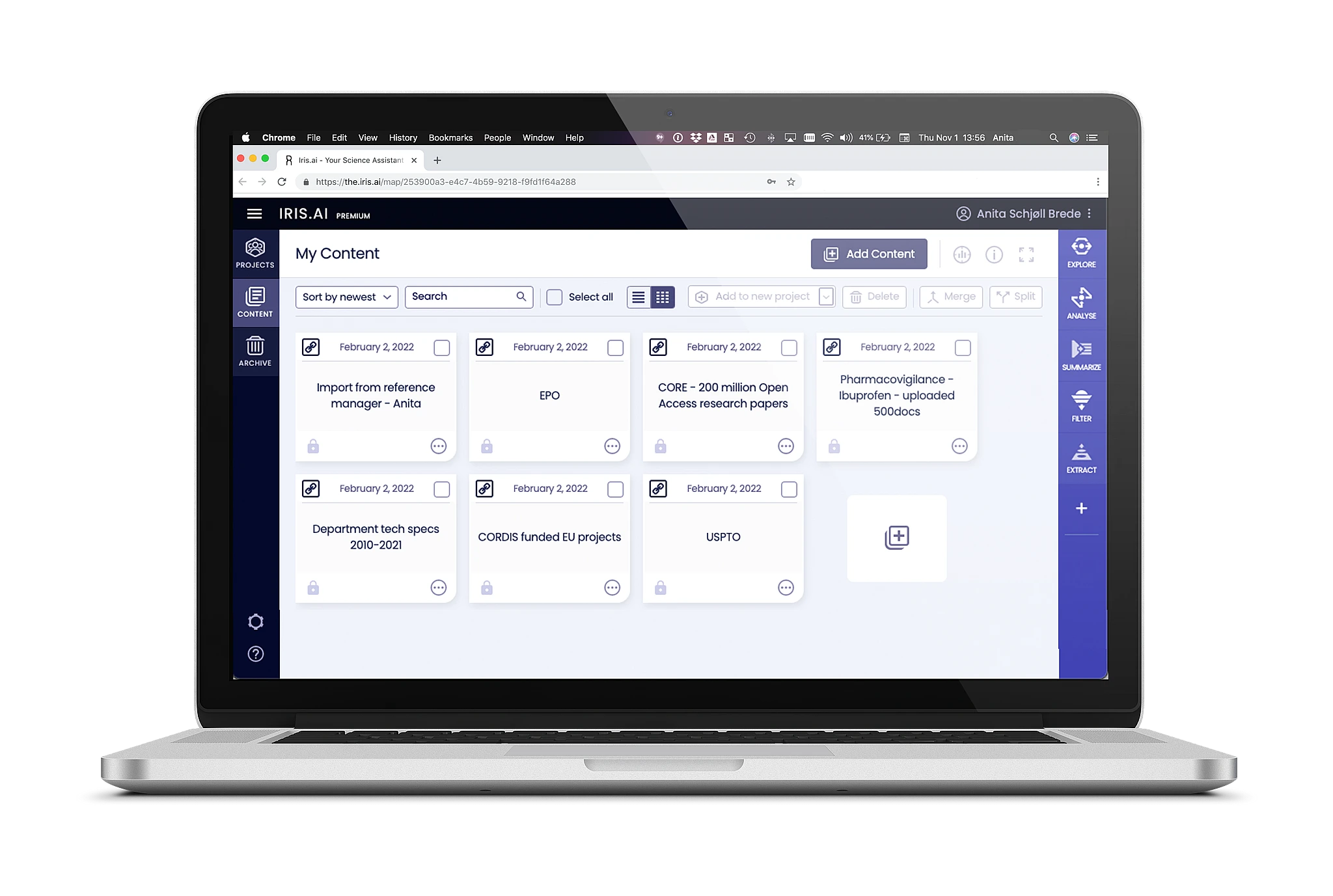
Iris.ai is an AI-powered research assistant that leverages natural language processing (NLP) and machine learning algorithms to help research assistants explore and navigate academic literature. With its semantic search capabilities, Iris.ai accelerates the literature review process and enhances research discovery.
Key Features and Capabilities
- Semantic search functionality for identifying relevant research articles and papers.
- Citation mapping and network visualization tools for understanding research connections.
- Smart summarization and annotation features for synthesizing research findings.
- Collaboration capabilities for sharing and discussing research projects with peers.
Real-world Use Cases or Examples
Iris.ai is widely used by research assistants, scholars, and students for literature review projects, research proposal development, and academic writing tasks. It is particularly valuable for interdisciplinary research and knowledge synthesis.
Typeset.io
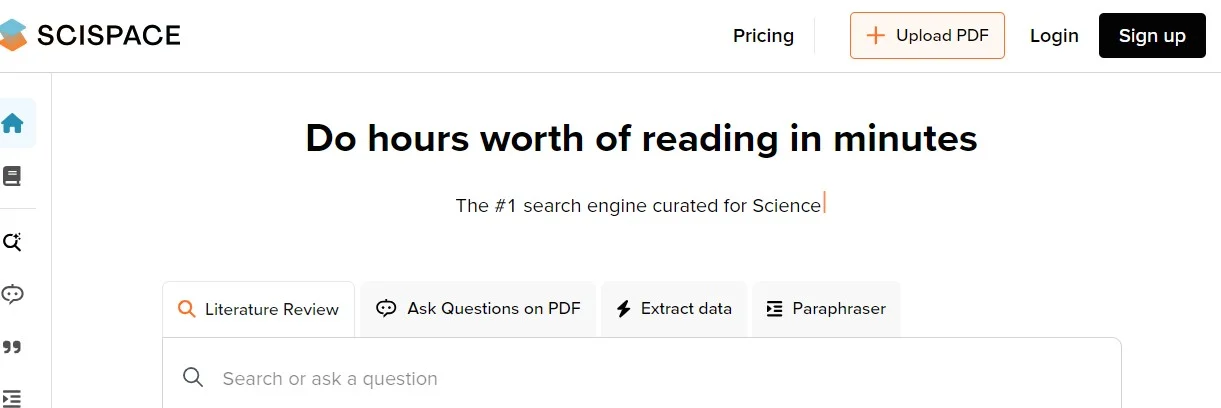
Typeset.io is an AI-powered platform that simplifies the process of manuscript preparation and publication for research assistants. With its automated formatting and submission tools, Typeset.io helps research assistants save time and effort in manuscript preparation, allowing them to focus on their research.
Key Features and Capabilities
- Automated manuscript formatting according to journal guidelines and citation styles.
- Reference management features for organizing and citing research references.
- Collaboration and version control tools for team-based manuscript writing.
- Integration with academic publishing platforms for seamless manuscript submission.
Real-world Use Cases or Examples
Typeset.io is essential for research assistants involved in academic publishing and manuscript preparation. It streamlines the manuscript formatting process and ensures compliance with journal requirements, enabling research assistants to submit their work efficiently.
Scholarcy
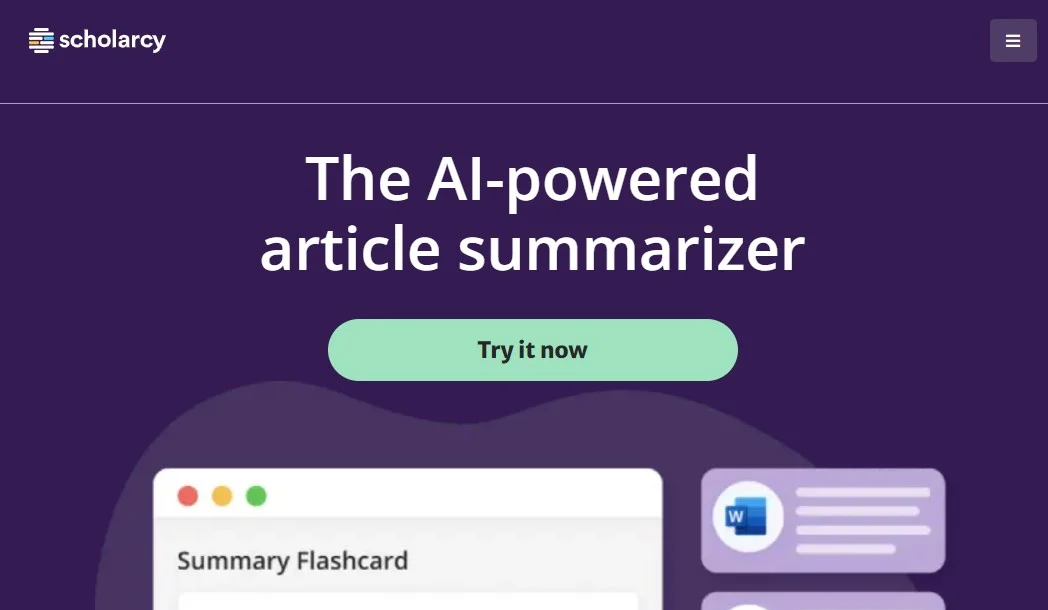
Scholarcy is an AI-powered research assistant that helps research assistants extract key insights from scholarly literature. By summarizing complex research articles and identifying key concepts, Scholarcy enables research assistants to quickly grasp the essence of academic papers and incorporate relevant information into their work.
Key Features and Capabilities
- Automatic summarization and highlighting of key points in research articles.
- Concept mapping and visualization tools for understanding research topics.
- Citation extraction and reference management features for generating bibliographies.
- Integration with academic databases and repositories for seamless literature search.
Real-world Use Cases or Examples
Scholarcy is indispensable for research assistants conducting literature reviews, writing research proposals, and preparing presentations. It is also valuable for educators and students seeking to understand complex research topics and concepts.
Semantic Scholar

Semantic Scholar is an AI-powered academic search engine that helps research assistants discover and access scholarly literature. With its comprehensive database and intelligent search algorithms, Semantic Scholar provides research assistants with valuable insights and resources to support their academic endeavors.
Key Features and Capabilities
- Semantic search functionality for identifying relevant research articles and papers.
- Citation analysis and reference tracking for understanding research impact.
- Smart recommendation algorithms based on user interests and research history.
- Integration with academic libraries and institutional repositories for access to full-text articles.
Real-world Use Cases or Examples
Semantic Scholar is widely used by research assistants, scholars, and students across various disciplines. It is instrumental in literature search, citation analysis, and research discovery, empowering research assistants to stay updated with the latest developments in their field.
Conclusion
In conclusion, AI-powered tools have revolutionized the way research assistants conduct academic research, offering a wide range of capabilities to enhance productivity and efficiency. Whether it’s literature search, data analysis, or manuscript preparation, there’s a tool available to meet every research assistant’s needs. By leveraging these innovative AI tools, research assistants can streamline their workflow, save time, and produce high-quality work with ease.
